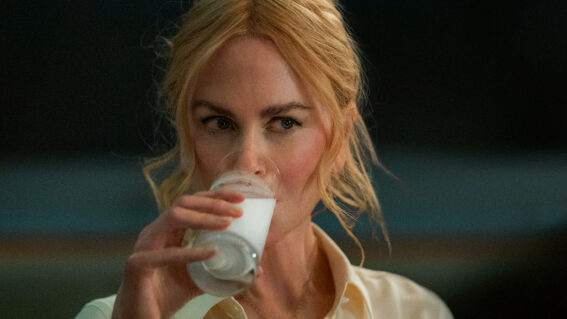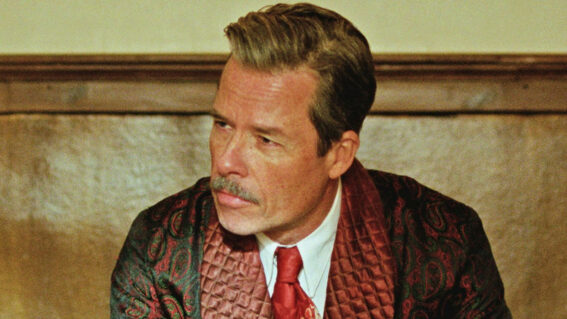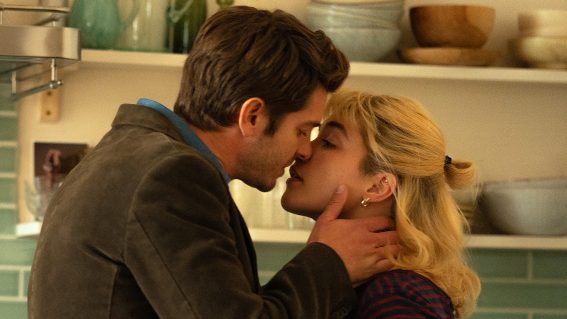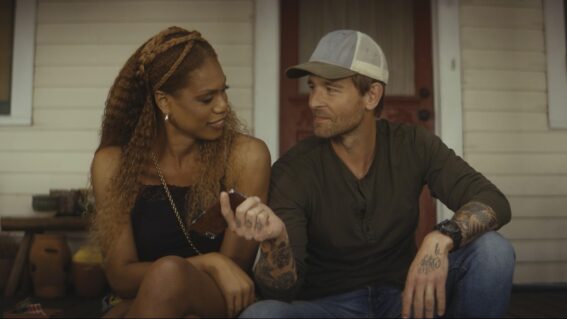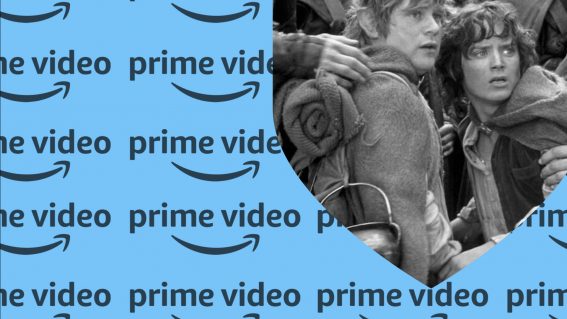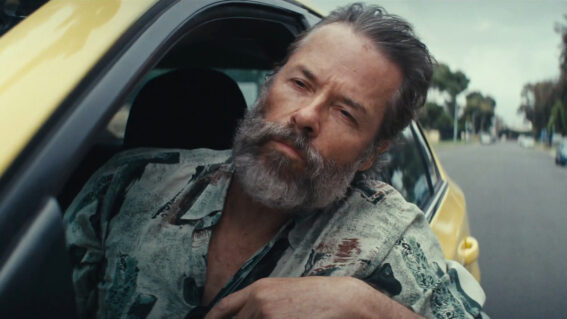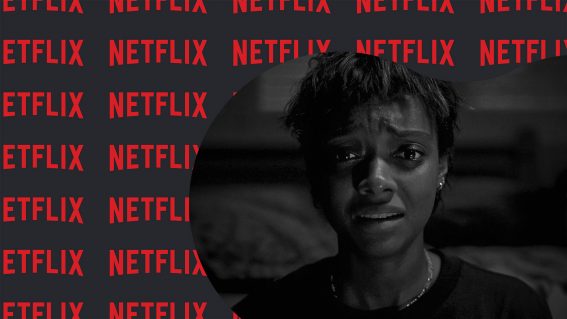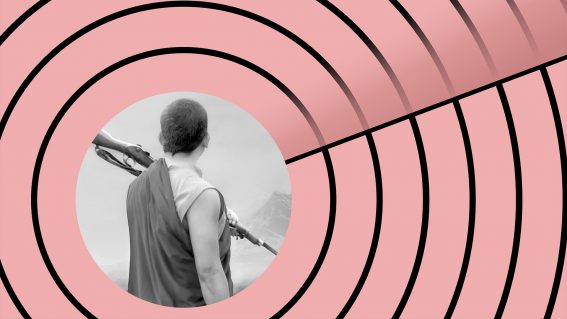All M. Night Shyamalan films, ranked from best to worst
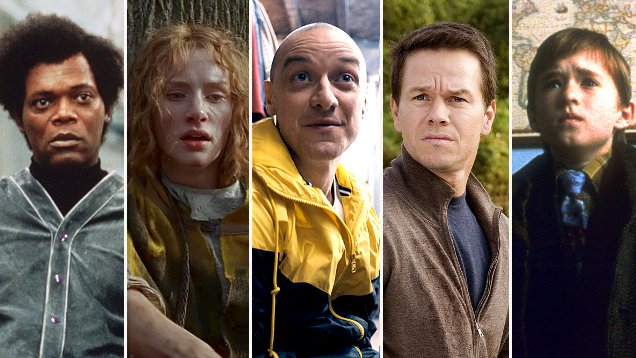
The director M. Night Shyamalan is known for many things, including quality that can best be described as…fluctuating. Critic Sarah Ward looks back on his career and ranks all his films from best to worst.
A quiet beginning, huge Hollywood success, a swift descent and then a surprise comeback. If M. Night Shyamalan were to make a movie about his own career, it’d probably pan out just like the real thing. The trademark twist? After becoming one of Hollywood’s hottest directors, then releasing a spate of terrible movies, he not only shot back to the top with 2016’s Split – his unexpected hit also proved a sequel of sorts to 2000’s Unbreakable.
Now Shyamalan returns with the sequel to that sequel, Glass following on from both Unbreakable and Split. In a filmography that includes seeing dead people, alien crop circles, aggressive plants, creepy grandparents, and a vanity project for Will and Jaden Smith, where does the director’s latest rank? We’ve revisited the lot – from the early movies that everyone forgets about to his big hits.
Here’s every Shyamalan film ranked from best to worst.
1. Unbreakable
Long before superhero movies hit cinemas each and every month, Shyamalan stepped into the caped crusader realm with this smart, subtle and sophisticated thriller. Unbreakable is a carefully measured movie – and one that’s all the more compelling for taking the time to explore its battle between Bruce Willis’ seemingly invincible train crash survivor and Samuel L. Jackson’s fragile comic book collector. Its ultimate success? While the film’s late-stage reveal helped set up Split and now Glass, it’s Unbreakable’s rumination on two lost souls looking for meaning in their lives that truly lingers.
2. The Sixth Sense
Six Oscar nominations and two decades later, The Sixth Sense’s twist has long become a punch line and a catchphrase, but the film’s ubiquity in popular culture is a badge of honour rather than a joke. One of the last movies that could keep its secrets from being spoiled weeks into theatrical release, this supernatural horror effort follows a child psychologist (Bruce Willis) who counsels a troubled boy (Haley Joel Osment), while showcasing what Shyamalan does best: searching for substance in melancholy.
3. Split
Playing a man with 23 different personalities – plus a beastly 24th guise fighting to get out – James McAvoy puts in a powerhouse performance in Split. Each and every identity doesn’t make its presence known, but, in enacting those that do, the Scottish actor transforms his mannerisms, physicality and energy for each. In short, Split wouldn’t be the same film without him. Shyamalan builds both an unsettling kidnapping drama and an involving mystery around McAvoy’s character, while deploying a stripped-back stylistic approach for a thrilling end result.
4. Signs
The curse of Shyamalan started with Signs. For most of its running time, the Mel Gibson-starring film proves immersive, intriguing and well-executed, until it is thoroughly let down by its ending. When the movie works, however, it really does work – more than the idea of a former reverend living on an isolated farm with his motley crew of kids and relatives (Rory Culkin, Abigail Breslin and Joaquin Phoenix), and discovering crop circles outside his house one morning, might seem to suggest.
5. Glass
After the big reveal at the end of Split, Glass fleshes out a world that boasts its immediate predecessor’s Kevin Wendell Crumb (James McAvoy), plus Unbreakable’s David Dunn (Bruce Willis) and Elijah Price (Samuel L. Jackson). Fascinating characters, fine performances and another thoughtful musing on finding significance in everyday events and traumas all result, but so does a movie that’s more convincing when it’s laying out its pieces than when it’s putting them all together.
6. The Village
After failing the landing on Signs, Shyamalan did the same again with its follow-up, with the director showing no indication that he’d learnt from his previous missteps. Set in an insular woodland township that’s dictated by 19th-century customs, when The Village hits the mark, it draws viewers into its moody enigmatic tale. But it’s not just the movie’s conclusion that falls flat – given that Shyamalan’s twist is a touch too easy to pick this time around, the film starts to falter as soon as its end game becomes obvious.
7. Praying with Anger
Made when Shyamalan was 22, and not only written, directed and produced by the filmmaker, but starring him as well, Praying with Anger is a standard but solid-enough debut. With a narrative about discovering one’s roots, navigating a clash of cultures and finding one’s own identity in the process, the film follows Shyamalan’s US-raised Dev Raman, who returns to India for a year at the request of his mother.
6. Wide Awake
Written in 1991, made in 1995 and released in 1998, Wide Awake marked Shyamalan’s second feature – and his only kid-friendly comedy. If it sounds like an odd choice for a filmmaker who’d become known for thrills and twists, that’s because it is. What this tale of a grieving ten-year-old (Joseph Cross) and the nun (Rosie O’Donnell) he befriends lacks in the supernatural, it adds in its spiritual leanings and its sentimentality.
7. The Visit
Post-After Earth, pre-Split, The Visit brought Shyamalan back into the spotlight – albeit with a narratively generic, tonally veering and all-round grating addition to his resume. Teenage siblings (Olivia DeJonge and Ed Oxenbould) head off to stay with their grandparents (Deanna Dunagan and Peter McRobbie) and discover that all is not right, while audiences discover that Shyamalan in slightly unhinged mode is even worse than Shyamalan leaning too heavy on his twists.
8. After Earth
John Travolta will always have Battlefield Earth to his name. Will Smith will always have After Earth – and so will his son Jaden. The elder Smith conjured up the story for this bland sci-fi exercise, and while he has denied ties to Scientology, his tale shares more than a few themes with the so-called church’s ideas. As for Shyamalan’s work on this this futuristic father-and-son quest to find a new world, he feels like a mere writer and director for hire.
9. The Last Airbender
Shyamalan gets little if anything right with his live-action adaptation of the animated television series Avatar: The Last Airbender. An action-fantasy about a 113-year-old spirit who takes the form of a 12-year-old and can control – or bend – water, earth, fire and air, it’s simultaneously busy yet dull, stilted and overdone. Indeed, it’s a film that everyone involved, including Dev Patel as its highest-profile star, would probably prefer to forget.
10. The Happening
Winner of the worst twist in any Shyamalan movie, and in most movies in general, The Happening sees Shyamalan take on the apocalyptic disaster genre. The film never once manages to engage its audience but, without its ridiculous revelation, it could easily be seen as a precursor to Bird Box. The premise: due to an unexplained event, much of humanity starts committing suicide, forcing a couple (Mark Wahlberg and Zooey Deschanel) to both flee to safety and try to work out what’s behind the mysterious happening.
11. Lady in the Water
Lady in the Water fancies itself as a fairy tale, but if it graced the page rather than the screen, it would hardly become a bedtime favourite. Shyamalan’s story – about a magical water nymph (Bryce Dallas Howard) in an apartment block swimming pool – is painfully shallow, as well as misguided about its own importance. More than that, it’s both convoluted and ridiculous. And the writer/director does himself few favours by featuring on-screen as a writer penning a book that’ll change the world.

